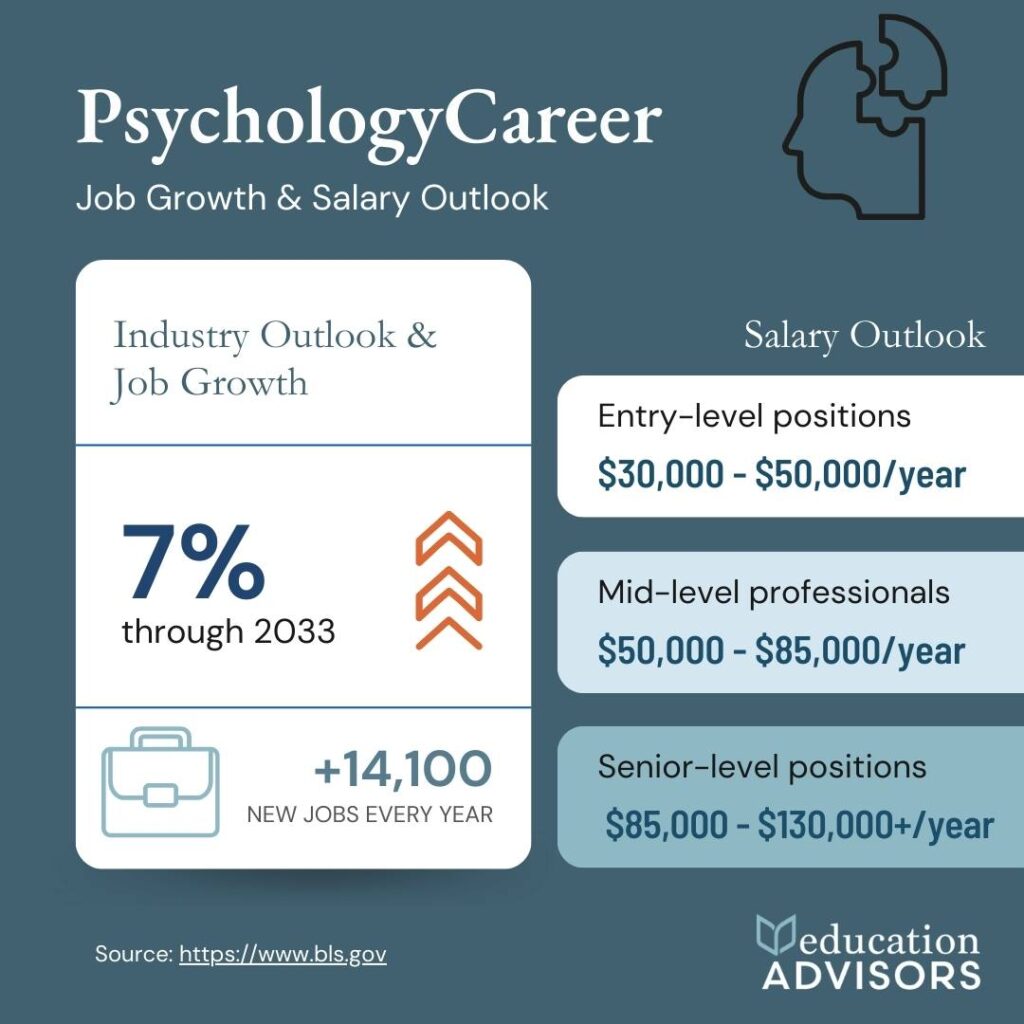
From CNA to RN: Here’s the Fastest Path (With Online Options!)
CAREER CONNECTIONS From CNA to RN: Here’s the Fastest Path (With Online Options!) Find Your
Discover your future
Are you passionate about understanding human behavior and helping others thrive? Psychology degree programs offer a gateway to meaningful careers in mental health, education, research, and beyond. Whether you’re exploring the basics with an associate degree or aiming for advanced roles with a master’s or doctoral degree, psychology provides a wide range of opportunities to make a difference. From studying cognitive processes to applying psychological principles in workplaces or schools, these programs equip you with the skills to impact lives positively and address some of society’s most pressing challenges. Dive into this guide to explore psychology degree options, career paths, salary insights, and industry growth trends.

CAREER CONNECTIONS From CNA to RN: Here’s the Fastest Path (With Online Options!) Find Your


CAREER CONNECTIONS 5 Healthcare Roles AI Will Never Replace Find Your Program Table of Contents


COLLEGE PLANNING 5 Online Degrees That Help You Work in Mental Health (Without Being a
Business degree programs are designed to prepare students for versatile roles across industries, with opportunities to specialize in key areas such as marketing, accounting, entertainment business, and business administration. Here’s an overview:
Ideal for: Entry-level roles such as Behavioral Technician or Psychiatric Aide.
Duration: Typically takes two years to complete.
Focus Areas: Introduction to psychology, developmental psychology, and basic research methods.
Ideal for: Roles like Human Resources Specialist or Case Manager.
Duration: A four-year degree that explores psychological theories, research methods, and applied psychology.
Common specializations: Clinical psychology, industrial-organizational psychology, and social psychology.
Ideal for: Advanced roles like Licensed Counselor, School Psychologist, or Research Specialist.
Duration: 1-2 years post-bachelor’s.
Focus Areas: Specialized courses in counseling techniques, psychological assessment, and mental health services.
Often a stepping stone to doctoral programs.
Ideal for: Professionals specializing in areas like addiction counseling, child psychology, or organizational behavior.
Popular Options: Certified Addiction Specialist (CAS) or Board Certified Behavioral Analyst (BCBA) enhance credentials.
*completion times vary by institution/program
Explore More Articles
From CNA to RN: Here’s the Fastest Path (With Online Options!)
5 Healthcare Roles AI Will Never Replace
5 Online Degrees That Help You Work in Mental Health (Without Being a Therapist)
Are Certifications Necessary for a Career in Psychology?
A Comprehensive Guide to IO Psychologists
Psychologist vs Psychiatrist – Which Education and Career Path is Best Suited for You?
How to Find a Psychology Internship: A Step-by-Step Guide
Master Essential Skills for Psychology: A Comprehensive Guide
Explore Degree Levels
Explore Degree Subjects
Psychology offers diverse career opportunities across various fields, each with strong job prospects (BLS) and unique degree requirements:


Role: Support individuals with behavioral or developmental challenges, often under the supervision of a licensed psychologist.
Degree Required: Associate or bachelor’s degree in psychology or a related field.
Median Salary: $39,610/year.


Role: Provide counseling and therapy for a range of issues, such as relating to alcoholism, addictions or depression to individuals or groups.
Degree Required: Bachelor’s degree in counseling or psychology, plus licensure.
Median Salary: $53,710/year.


Role: Support student mental health and learning development in educational settings.
Degree Required: Master’s or specialist degree (e.g., Ed.S.); sometimes requires a doctoral degree.
Median Salary: $78,780/year.


Role: Apply psychological principles to workplace challenges and employee behavior.
Degree Required: Master’s degree (minimum); doctoral degree preferred for advanced roles.
Median Salary: $147,420/year.


Role: Diagnose and treat mental health disorders.
Degree Required: Doctoral degree (Ph.D. or Psy.D.).
Median Salary: $96,100/year
Job Growth: 7% through 2033.
The demand for psychology professionals continues to rise as awareness of mental health grows. According to the Bureau of Labor Statistics:
Psychology salaries depend on factors like education, specialization, and location:
Salaries are typically higher in urban areas and states like California, New York, and Texas.


A degree in psychology opens doors to meaningful careers in mental health, education, and business. Whether you pursue an associate degree to enter the workforce quickly or a doctoral program to become a licensed psychologist, psychology offers a fulfilling path to make a positive impact on others’ lives.
You can pursue roles like Behavioral Technician, Psychiatric Aide, or Case Manager, or use it as a stepping stone to a bachelor’s program.
Typically, it requires a bachelor’s degree (4 years), a master’s degree (2 years), and a doctoral degree (4-7 years), plus supervised experience for licensure.
A Ph.D. focuses on research and academic work, while a Psy.D. emphasizes clinical practice.
Yes, many accredited institutions offer online programs that meet the same standards as on-campus programs.
While some roles only require a bachelor’s degree, advanced positions like Licensed Counselor or School Psychologist typically require a master’s degree.
*Salary figures, job growth statistics, and career outcomes are based on national averages and may vary based on location, experience, and employer requirements. This information is for general guidance only.